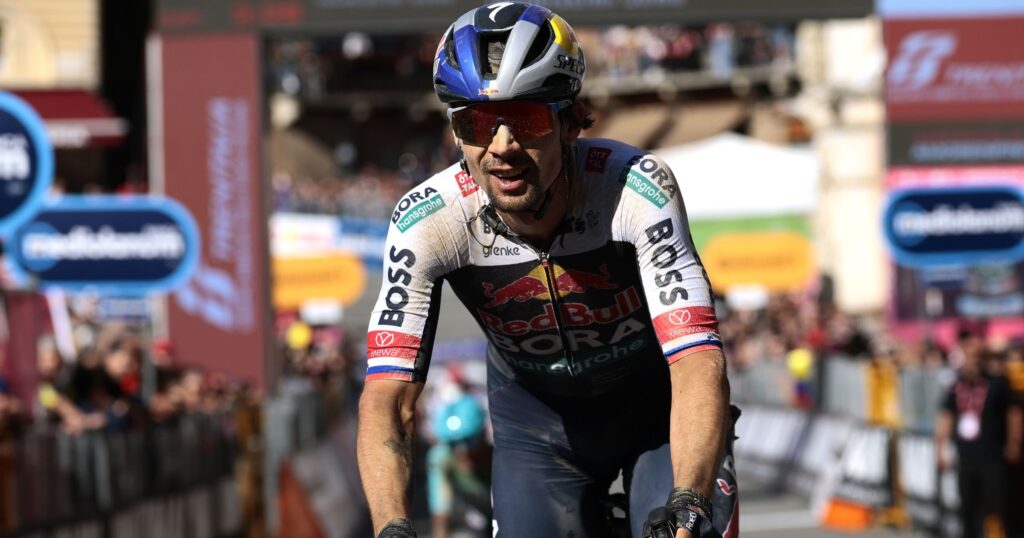The Giro d’Italia is one of the most prestigious and arduous cycling competitions in the world, held annually in Italy. Known for its challenging mountain stages, breathtaking scenery, and intense competition, the event attracts elite racers from across the globe. Recently, the atmosphere in the Giro has been filled with excitement and camaraderie, especially among the riders engaged in fierce but friendly rivalries. One noteworthy discussion during the latest stages focused on Slovenian cyclist Primož Roglič, whose remarkable resilience and ability to recover from setbacks have sparked a humorous debate among his competitors.
Roglič, a formidable presence on the cycling circuit, has been known for what many are calling his ‘bouncebackability’—a term that reflects his capacity to rebound from adversity. After facing challenges in previous races, including tough climbs and mechanical failures, Roglič has repeatedly displayed an uncanny knack for rebounding swiftly, often to the surprise of his rivals. This characteristic has led to a lighthearted joke among breakaway teams, suggesting that Roglič might have a secret advantage, even going so far as to speculate humorously that he has an identical twin aiding him on the course. These banters among competitors not only ease the tension of high-stakes races but also strengthen the bonds among the athletes.
As the wind howled through the mountain passes, Roglič’s performance stood out in the latest stages of the Giro. Not only did he manage to maintain his lead, but he did so with remarkable poise and skill. As he climbed steep inclines, his concentration and stamina were tested to the limit. Yet, it was Roglič’s refusal to succumb to pressure that amazed his peers. Observers noted that his training in the Julian Alps seemed to have prepared him meticulously for the rigors of the race. Each ascent demonstrated his impressive technique, and every downhill stretch revealed his uncanny aptitude for maneuvering through technical descents.
Competing teams could not help but notice the transformation in Roglič’s demeanor this year. The jovial banter among breakaway teams showcased a newfound camaraderie. Competitors engaged with one another in playful joking rather than adopting a cutthroat attitude. This light-hearted atmosphere symbolizes the spirit of sportsmanship prevalent in the Giro d’Italia and highlights the unique relationships formed through shared passions and challenges in the biking community.
Nevertheless, the competition remains fierce, and not just Roglič but all riders are acutely aware that every stage could turn the tide of the race. Rivals may share laughs, but they are equally focused and determined, crafting strategies to either support their own chances of success or look to capitalize on any slip-up by those in contention for the maglia rosa, the pink jersey awarded to the overall leader. The stakes are high, and while jokes are made in good humor, the underlying competitive spirit remains fierce.
As the racing season progresses, all eyes seem to be glued to Roglič and how he adapts to each challenge presented. The enthusiasm among fans, riders, and support teams creates an electrifying atmosphere that encapsulates the essence of the Giro d’Italia. Each competitor knows that to succeed, they must summon their inner strength and resilience—characteristics that the riders continually exhibit, but perhaps none as visibly as Roglič.
Ultimately, the Giro d’Italia is not just about the physical demands of the race; it’s also a mental game where strategy and morale play significant roles. The jokes about Roglič’s ‘twin’ are a testament to the respect he commands among other cyclists. The camaraderie, humor, and relentless drive witnessed during this prestigious event form a beautiful tapestry of human spirit and competitive edge that continues to captivate audiences worldwide, making each edition of the Giro d’Italia a hallmark of cycling excellence.



